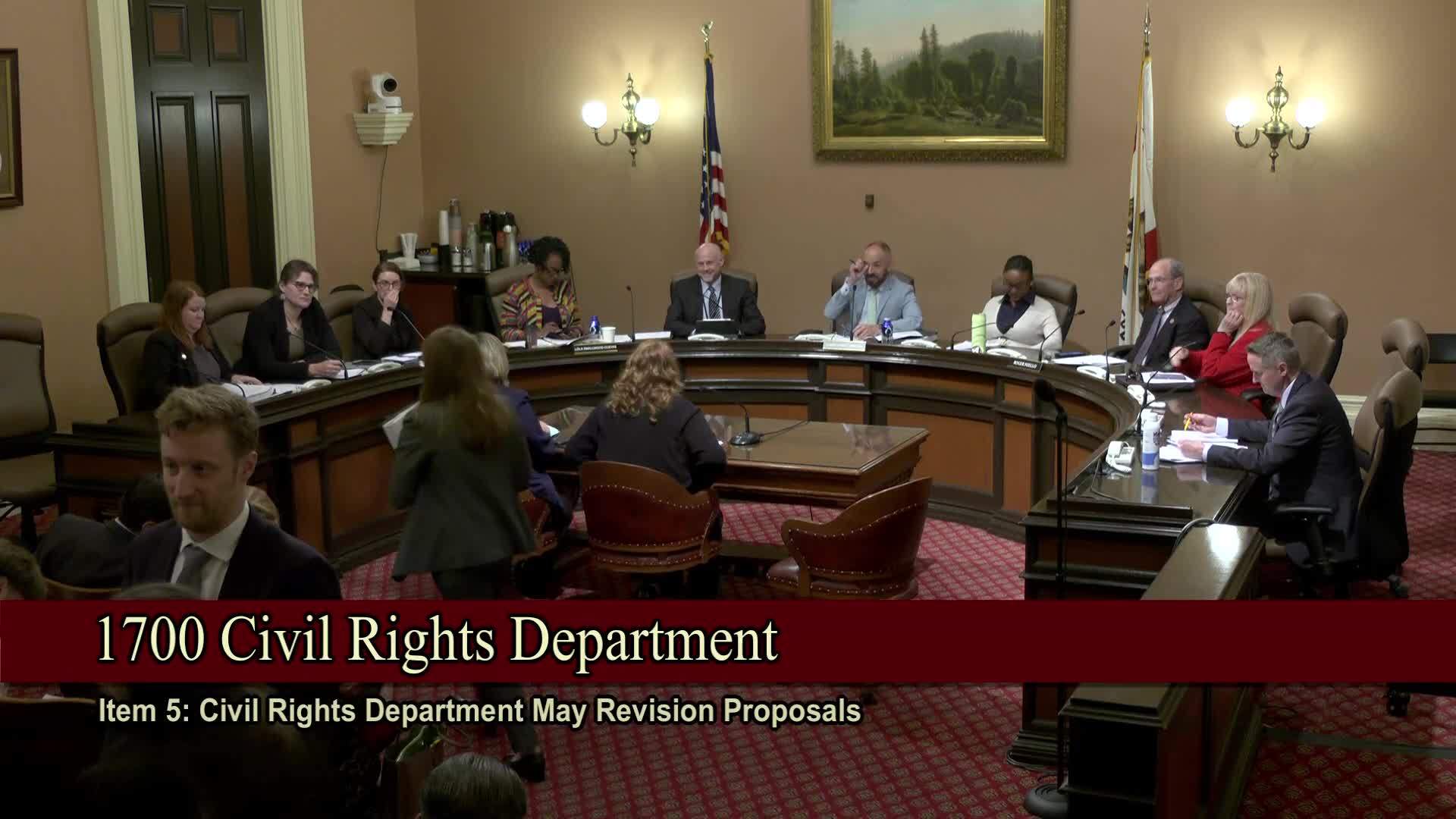Article not found
This article is no longer available. But don't worry—we've gathered other articles that discuss the same topic.
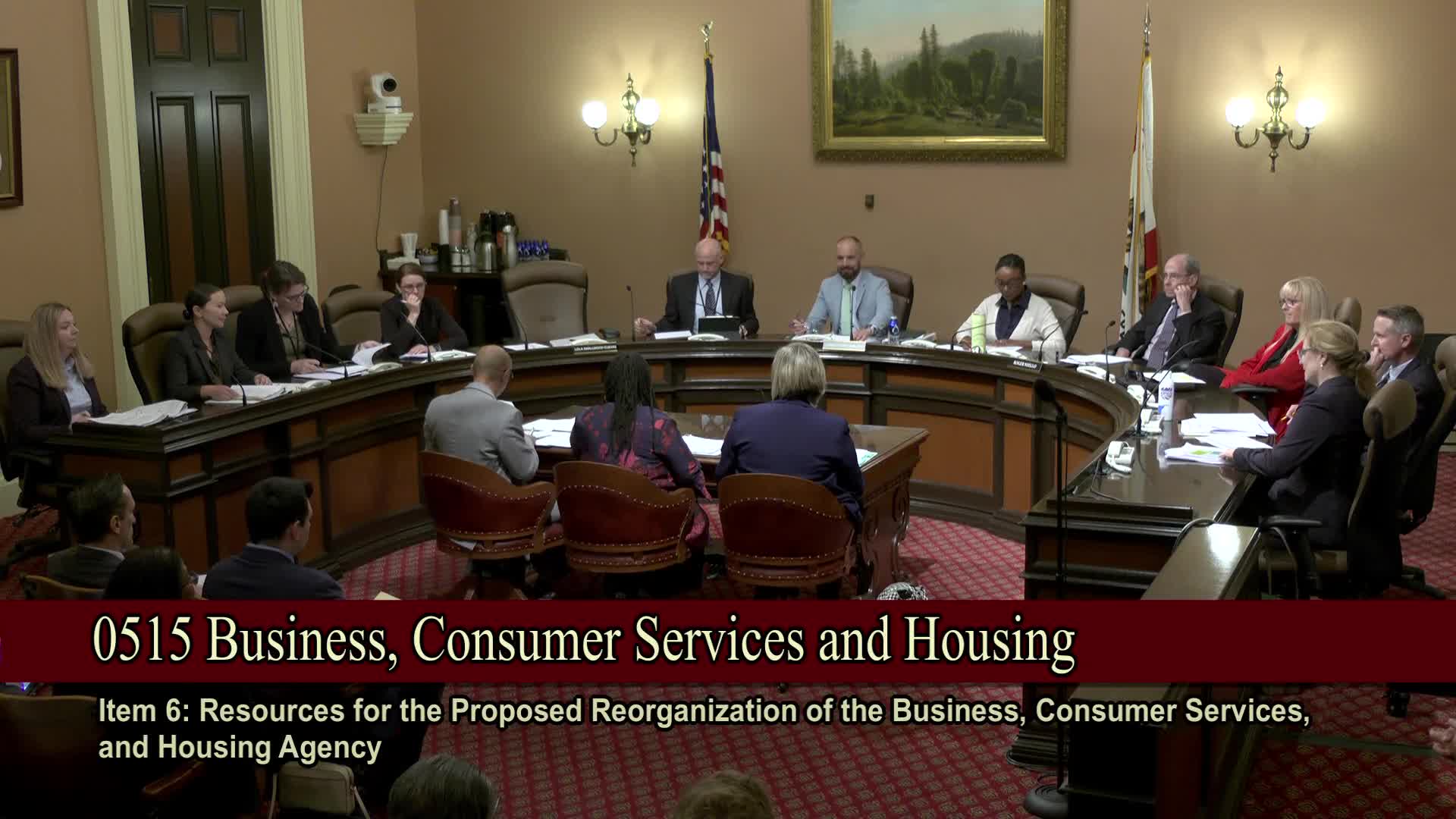
Administration seeks to split Business, Consumer Services and Housing agency into two cabinet-level entities
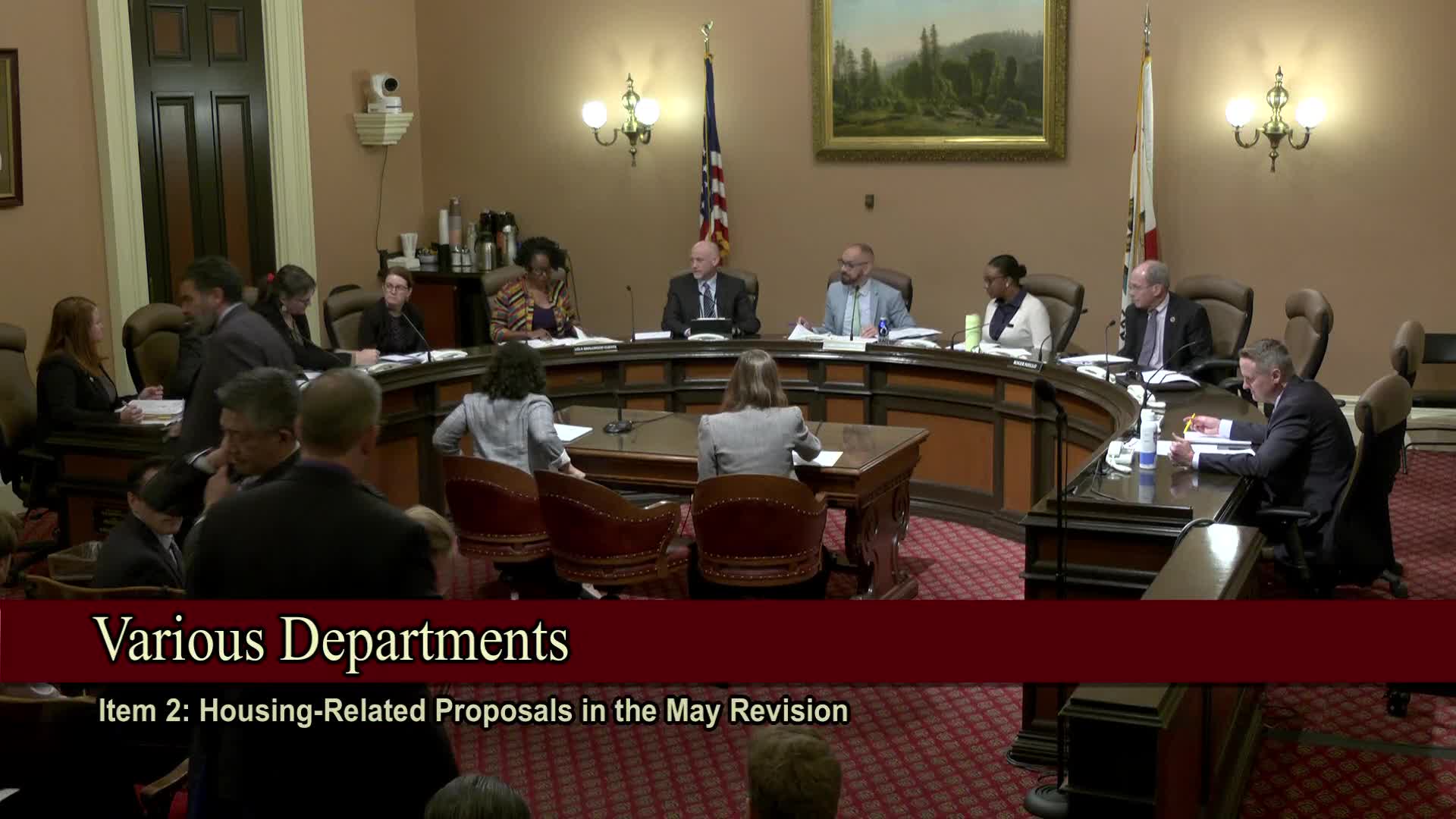
May revision would revert $31.7 million and advance climate-aligned housing changes including a VMT mitigation option
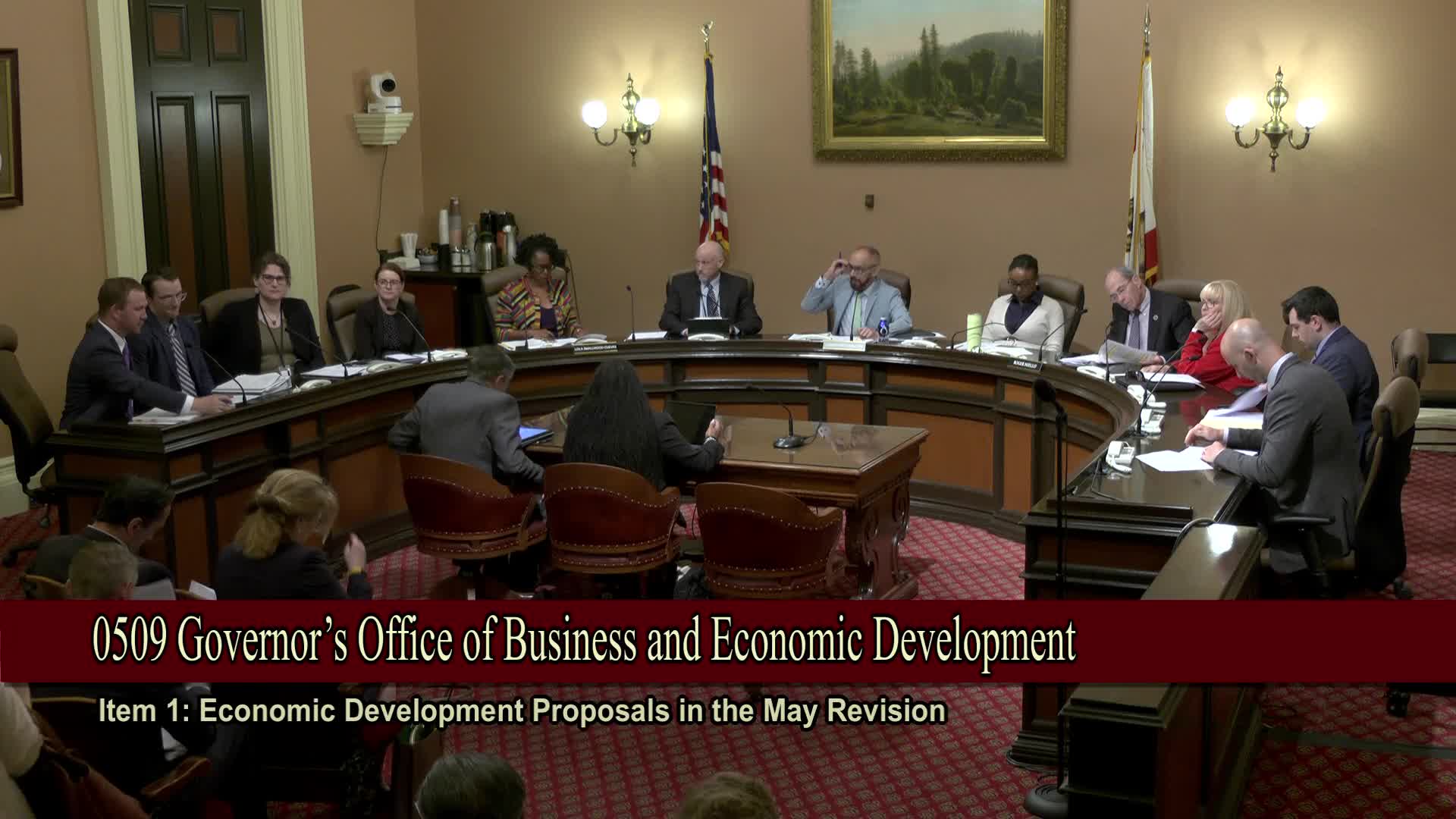
May revision withdraws Cal Competes grant funding and reverts $11.5M from equitable payroll program; lawmakers press for local economic impact data
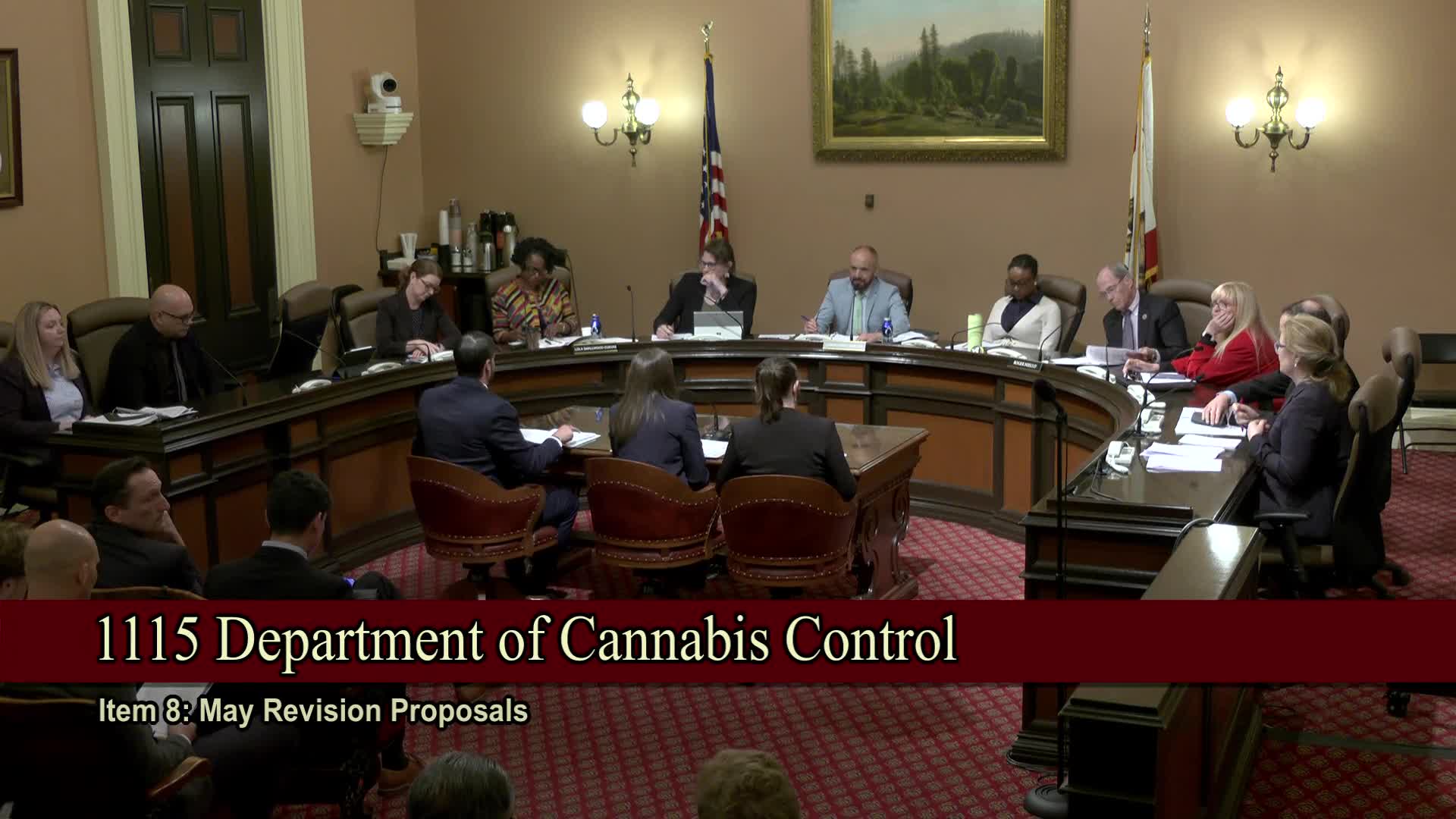
Department of Cannabis Control proposes shifting illicit-market enforcement costs to cannabis tax fund and new authority to seal illicit premises
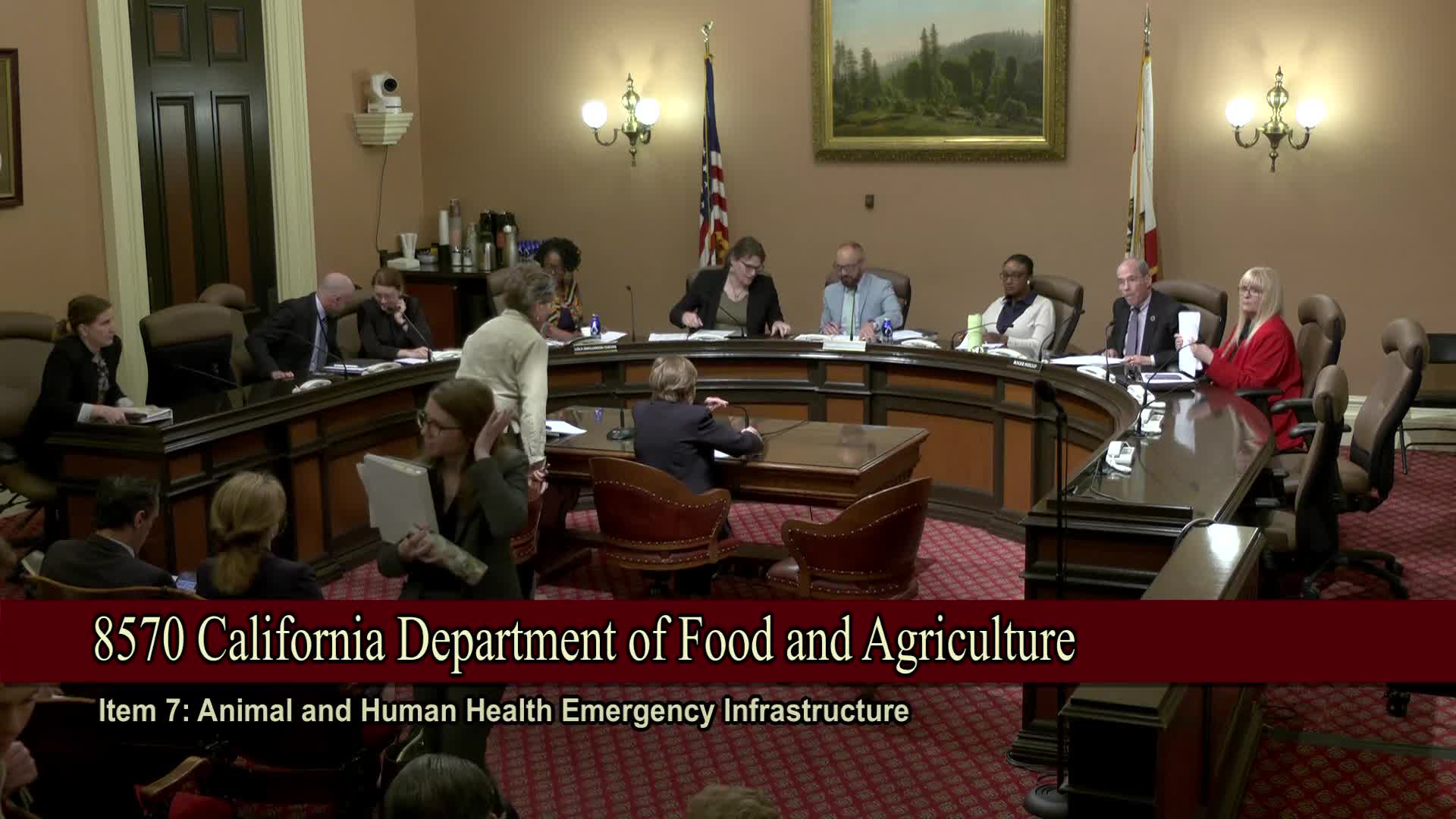
CDFA seeks multi-year funding to boost animal and human health emergency response after avian influenza and dairy cases
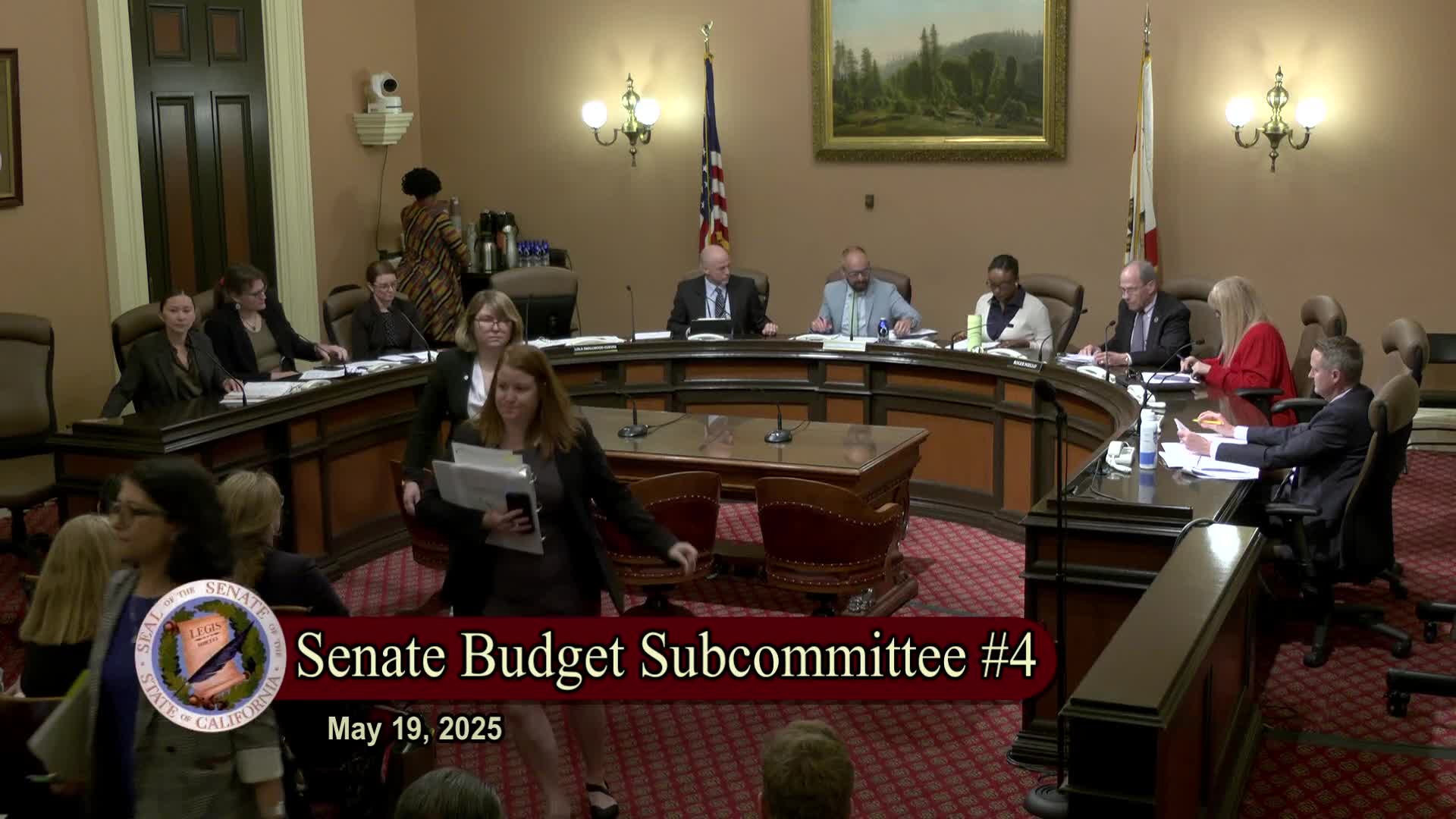
May revision proposes no new general fund for homelessness; HAP pipeline and accountability remain central
